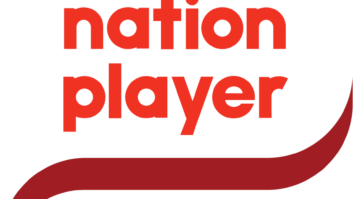One petitioner is an Australian husband/wife combination that has deep ties to their local community. The other petitioner is a media conglomerate based in Mexico that seeks to expand its ownership stake in one of the leading Hispanic broadcasters as part of an initial public offering.
While they come from significantly different perspectives, both petitioners face the same issue: obtaining authorization to increase their respective ownership stake in FCC-licensed broadcast stations. This column has discussed the steady progression of attempts to permit foreign investors to control more than 25 percent of the equity in broadcast stations.
The Federal Communications Commission set this process in motion by first modifying its foreign investment procedures for common carrier licenses in 2013, by adopting streamlined procedures for reviewing proposed foreign investments and eliminating the distinction between proposals involving World Trade Organization and non-WTO countries.
Subsequently, in response to a request for clarification by the Coalition for Broadcast Investment, the FCC issued a declaratory ruling wherein it reaffirmed that it would review requests for foreign ownership stakes above 25 percent on a case-by-case basis.
THE PANDORA TIPPING POINT
Then, in October 2015, the FCC released a notice of proposed rulemaking, wherein it proposed to adopt rules that would apply the streamlined procedures currently in place for common carriers to broadcast investments. Finally, as noted in this column, the FCC granted relief (albeit very reluctantly) for Pandora to purchase a broadcast station, even though Pandora could not confirm that the company was below the 25 percent threshold.
While the FCC has not adopted a report and order in the October 2015 proceeding, the petitions filed by the Australian nationals and Univision/Televisa seek to take advantage of this loosening of the historical reluctance of the media bureau to permit expanded foreign ownership stakes.
In particular, to support their request, the Australian investors pointed to their long-standing management of broadcast stations in Alaska and Texas, as well as their standing in the local community. Their proposal, if granted, would permit the expansion of their ownership stakes to increase from 20 percent to 100 percent and would permit the current majority shareholder to retire. The parties argued that there is a very small likelihood that an unrelated third-party would purchase the majority shareholder�s stake in the company due to the stations� remote locations in Alaska. The parties also highlighted the strong international relationship with Australia as an ally of the United States and the countries� shared history.
Rather than tying their request to the anticipated retirement of the majority shareholder in rural Alaska, Univision and Televisa based their proposed foreign ownership stake on an anticipated IPO, and the need for an increased foreign investment to compete against media conglomerates that are note tied down by the Communications Act�s foreign ownership restrictions. And for those of us interested in the history of the industry, the petition also included an extended discussion of the original purpose and development of the foreign ownership rules in the early days of broadcasting.
The proposed increase in Televisa�s stake in Univision to at least 40 percent, along with new foreign investment that could take the overall foreign control of Univision to 49 percent, was characterized as a necessity for Univision as it competes against cable operators (Charter and Verizon), internet portals (Google, Yahoo and AOL) and OTT providers like Hulu and Netflix.
While these petitions are being addressed separately, and are independent of the October 2015 rulemaking proceeding, it is likely that the FCC will review the comments submitted in response to the rulemaking, as well as those submitted in response to these two petitions, when fashioning their final rules to address foreign ownership in broadcast facilities.
Comments on both proposals are due in early August, with reply comments due Aug. 22 on the Alaska proposal on, and Sept. 7 for the Univision proposal.
Petro is of counsel at Drinker Biddle & Reath LLP. Email: [email protected].












